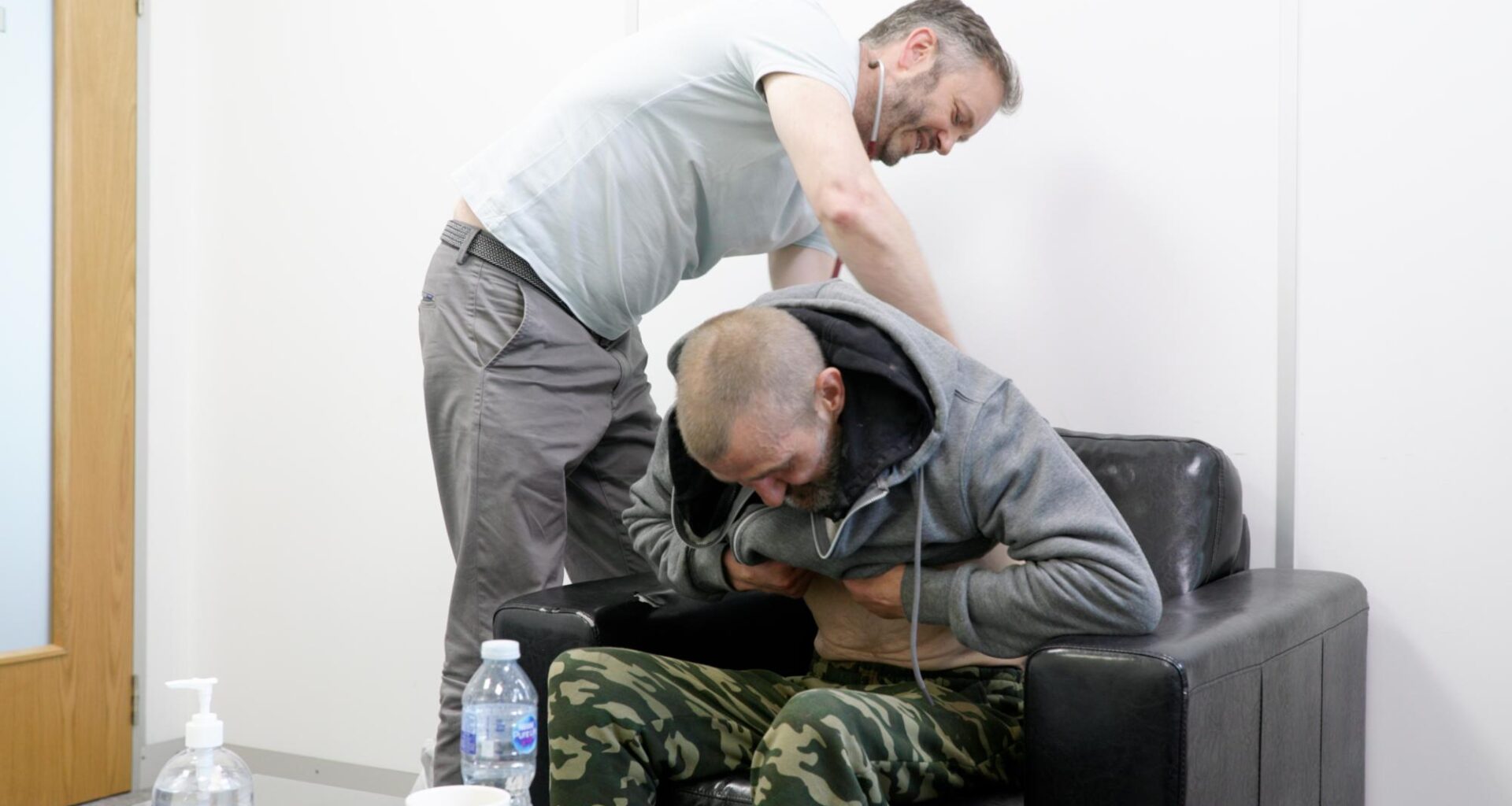A respiratory clinic, led by a Nottingham University Hospitals NHS Trust (NUH) Professor of Respiratory medicine, and set up to prevent premature deaths of rough sleepers and reduce pressure on hospital admissions, is in the running for a national award.
The service, which is the first of its kind in the UK, was launched in partnership with NUH, Framework, City Care and Nottinghamshire Healthcare NHS Foundation Trust. This pioneering new initiative is saving lives as well as reducing hospital admissions, emergency department attendances and ambulance call outs.
Held at the Nottingham Recovery Network Wellbeing Hub in Nottingham city centre, the Respiratory Rough Sleepers Virtual Ward is transforming the way a vulnerable group of people experiencing severe and multiple disadvantages can receive vital treatment.
The life expectancy of a rough sleeper in the UK is 44, according to the Office for National Statistics (ONS), with one of the most common causes of death being respiratory disease. Many slip through the net of traditional health services due to difficulties accessing appointments and stigma around hospitals.
Led by Professor of Respiratory Medicine, Dominick Shaw, the service has been named as a finalist in prestigious Health Service Journal (HSJ) Patient Safety Awards.
The Respiratory Rough Sleepers Virtual Ward has been named as a finalist in the prestigious Health Service Journal (HSJ) Patient Safety Awards for the Urgent and Emergency Care Safety Initiative of the Year, with winners announced on 15 September.
Nottingham University Hospitals’ Professor Dominick Shaw said: “The value of the service is offering hospital-level clinical respiratory care to patients who can’t access that because of multiple reasons: because of deprivation, because of poverty, because of stigma. The clinic offers that service in an area they’re comfortable with, giving them treatments that prevent them getting admitted to hospital and improve their chances of breathing properly.
“Pneumonia, Tuberculosis (TB), Chronic obstructive pulmonary disease (COPD), asthma—all those diseases are treatable and preventable. This could be scaled up across the East Midlands, across the UK, in each city if we got the same joined-up partnership that we get here with different hospital trusts, third-sector organisations, and experts in their field.”
The partner agency, Framework, plays a critical role in facilitating engagement among rough sleepers. Outreach teams identify those in need of a respiratory review the night before their appointment and encourage them to attend with a £5 voucher to cover a meal or hot drink.
Apollos Clifton-Brown, Framework’s Director of Health and Social Care, said: “The drop-in respiratory clinic is changing and saving the lives of some of the most vulnerable people in Nottingham.
“This rich mix of connections, expertise and experience, combined with the clinical skills of NUH, is what makes the respiratory clinic such a fantastic success.”
Treatment at the clinic has had a big impact on Ross Nixon’s life. The 46-year-old has been sleeping rough for three years after leaving prison and struggling with his mental health. The clinic was able to diagnose him with severe asthma and show him how to use his inhaler correctly.
Ross said: “It’s amazing. I feel so much better. It’s like I’m a different man. Before I could only walk so far and I would get out of breath. They talked to me, and I went in and I’m glad I did because I feel so much better.
“I notice the difference when I’m sleeping. He said my breathing was much better. I was worried about sleeping in case my breathing would stop. I’m just lucky I’ve got workers around me that show me lots of love. They help me with everything, they’re amazing, brother.”
Another service user said: “Since this clinic visit, my health has been better, a lot better. It’s improved a lot since my younger days where I was struggling to breathe.”
With the government’s new 10-year NHS healthcare plan arriving in 2025, the HSJ awards take on even greater significance, reflecting the critical work being done to address the complexities of delivering safe care amidst times of significant change and long-standing pressures.
These awards continue to inspire progress, drive collaboration, and set the benchmark for best practices in patient safety, ensuring that the care of patients and their families remain at the forefront of healthcare system priorities.
